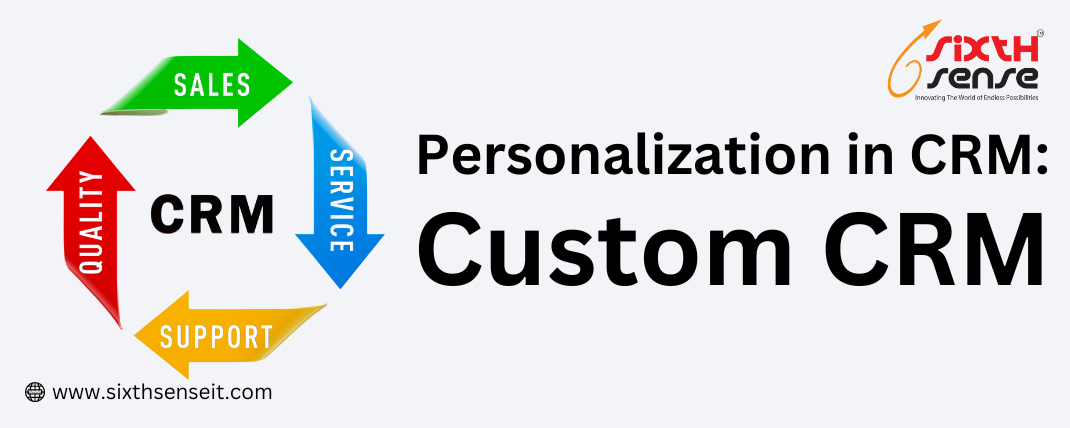
How can i increase sales in my business?


Sales refer to the process of selling goods or services to customers in exchange for money. In other words, sales are the transactions that generate revenue for a business. It is the primary source of income for most businesses, and the ability to increase sales is a critical factor in achieving growth and profitability.
The sales ratio, also known as the sales growth rate, is the percentage increase in sales over a specific period. It is calculated by dividing the difference between the current period's sales and the previous period's sales by the previous period's sales and multiplying the result by 100.
The increase in sales ratio is important for several reasons:
Revenue growth:
A higher sales ratio means the business is generating more revenue, which is essential for the business's growth and expansion.
Competitive advantage: A business with a higher sales ratio is likely to have a competitive advantage over its competitors. It indicates that the business is doing something right, which is attracting more customers.
Profitability:
A higher sales ratio can lead to higher profits, provided the business can maintain its profit margin. Increased sales mean that the business can spread its fixed costs over a larger volume of sales, which can result in higher profits.
Investor confidence:
Investors often look at a business's sales ratio as an indicator of its financial health. A business with a higher sales ratio is more likely to attract investment and have a positive reputation in the market.
In conclusion, sales are critical for the success of any business, and the ability to increase sales is essential for growth and profitability. The sales ratio is an important metric that businesses can use to monitor their performance and identify opportunities for improvement. By focusing on increasing sales, businesses can achieve their goals, attract new customers, and maintain their competitive edge.
As a business owner, one of your top priorities is increasing sales. Generating more revenue is critical for growth, expansion, and long-term success. However, it can be challenging to know where to start and what strategies will work best for your business. In this blog post, we'll explore some effective ways to increase sales in your business.
Marketing is a key factor in attracting customers and driving sales. It's essential to have a well-planned and executed marketing strategy that aligns with your business goals. Some effective marketing tactics include:
Social media marketing: Utilize social media platforms to connect with your audience, promote your products, and drive traffic to your website.
Content marketing: Create valuable, informative content that showcases your expertise and provides value to your audience. This could be in the form of blog posts, videos, podcasts, or social media posts.
Email marketing: Send out regular emails to your subscribers with product updates, promotions, and other relevant information.
Influencer marketing: Partner with influencers or other businesses in your industry to reach a wider audience and drive sales.
Everyone loves a good deal, and offering promotions and discounts can be an effective way to increase sales. Consider running limited-time offers, bundling products together, or offering discounts for first-time customers. You can also create loyalty programs to reward repeat customers and encourage them to continue shopping with you.
Your website is often the first point of contact between your business and potential customers. Therefore, it's crucial to ensure your website is well-designed, user-friendly, and optimized for conversions. Some ways to improve your website include:
Offering a wider range of products or services can attract new customers and increase sales from existing ones. Conduct market research to identify areas where there is a demand for products or services that complement your existing offerings. Alternatively, you could consider creating a subscription service to provide recurring revenue and encourage customers to purchase from you regularly.
In conclusion, increasing sales is essential for the long-term success of your business. By focusing on marketing, promotions, website optimization, customer service, and product expansion, you can attract new customers, retain existing ones, and boost your revenue. Remember, success takes time and effort, so be patient and persistent in your efforts to increase sales.
Business practices refer to the methods, processes, and behaviors that an organization adopts to carry out its operations and achieve its objectives. They encompass a wide range of activities, including strategic planning, marketing, sales, operations, finance, human resources, customer service, and more. Effective business practices are essential for optimizing efficiency, productivity, and overall performance.
Efficiency: Well-managed business practices streamline operations, eliminate unnecessary steps, and reduce waste, resulting in increased efficiency. This, in turn, leads to cost savings, improved resource allocation, and enhanced productivity.
Consistency: Implementing consistent business practices ensures that tasks are performed uniformly across the organization. This promotes standardized quality, reduces errors, and enhances customer satisfaction.
Adaptability: Managing business practices allows organizations to adapt to changing market conditions, technological advancements, and customer expectations. It enables businesses to stay agile and respond effectively to emerging trends and challenges.
Competitive Advantage: A company that effectively manages its business practices gains a competitive edge. By continually evaluating and optimizing processes, organizations can deliver products or services faster, with higher quality and lower costs, setting themselves apart from competitors.
Risk Management: Effective business practices incorporate risk management strategies. By identifying potential risks, establishing controls, and implementing mitigation measures, organizations can minimize the impact of unforeseen events and protect their interests.
Employee Engagement: Well-managed business practices provide clarity and structure for employees, enabling them to understand their roles, responsibilities, and expectations. This fosters a positive work environment, boosts employee morale, and enhances engagement and productivity.
Customer Satisfaction: Efficiently managed business practices contribute to improved customer satisfaction. By ensuring consistent and reliable service delivery, organizations can meet customer needs, build loyalty, and enhance their reputation.
Innovation and Growth: An organization that actively manages its business practices fosters a culture of innovation. By regularly evaluating processes and seeking opportunities for improvement, businesses can drive innovation, identify new growth avenues, and stay ahead of the competition.
Compliance and Ethics: Effective business practice management includes adherence to legal and ethical standards. By establishing robust policies and procedures, organizations can ensure compliance, maintain ethical conduct, and safeguard their reputation.
Long-Term Success: Ultimately, managing business practices is critical for long-term success. By continuously evaluating and refining processes, organizations can stay relevant, adapt to market dynamics, and position themselves for sustained growth and profitability.
In summary, managing business practices is essential for optimizing efficiency, achieving consistency, fostering adaptability, gaining a competitive advantage, mitigating risks, engaging employees, satisfying customers, driving innovation, ensuring compliance, and securing long-term success. By focusing on improving and refining their business practices, organizations can enhance their overall performance and thrive in today's dynamic business landscape.
Focus on customer satisfaction: The key to building a successful business is to focus on meeting and exceeding customer expectations. This requires a commitment to providing exceptional customer service, delivering high-quality products and services, and actively seeking feedback from customers to improve operations.
Embrace innovation: In today's fast-paced business world, it is crucial to stay ahead of the competition by embracing new technologies, processes, and business models. This can include adopting new software systems, investing in research and development, or exploring new markets and revenue streams.
Streamline processes: Streamlining business processes can help to improve efficiency, reduce costs, and improve the overall customer experience. This includes identifying and eliminating bottlenecks, automating repetitive tasks, and optimizing workflows.
Build a strong team: Building a strong team is crucial to the success of any business. This requires a commitment to hiring talented individuals, fostering a positive and collaborative work environment, and investing in ongoing training and development.
Set clear goals: Setting clear, measurable goals is essential to achieving success in any business. This requires identifying key performance indicators (KPIs) and regularly tracking progress toward these goals.
Use data to drive decision-making: In today's data-driven business environment, it is important to use data to inform decision-making. This includes collecting and analyzing data on customer behavior, market trends, and internal operations to identify areas for improvement.
Build a strong brand: Building a strong brand is essential to establishing credibility and trust with customers. This requires a commitment to creating a consistent brand image across all channels, investing in marketing and advertising efforts, and actively engaging with customers on social media and other platforms.
Foster a culture of collaboration: Fostering a culture of collaboration is essential to promoting innovation, improving efficiency, and building a strong team. This includes encouraging open communication, fostering a sense of shared ownership and responsibility, and rewarding collaboration and teamwork.
Stay agile and adaptable: In today's rapidly changing business environment, it is important to stay agile and adaptable. This requires a commitment to continuous learning, staying up-to-date with industry trends and best practices, and being willing to pivot and adjust strategies as needed.
Emphasize ethical and sustainable practices: As consumers become more socially and environmentally conscious, it is important for businesses to prioritize ethical and sustainable practices. This includes adopting sustainable business practices, minimizing environmental impact, and promoting social responsibility.



















































































































